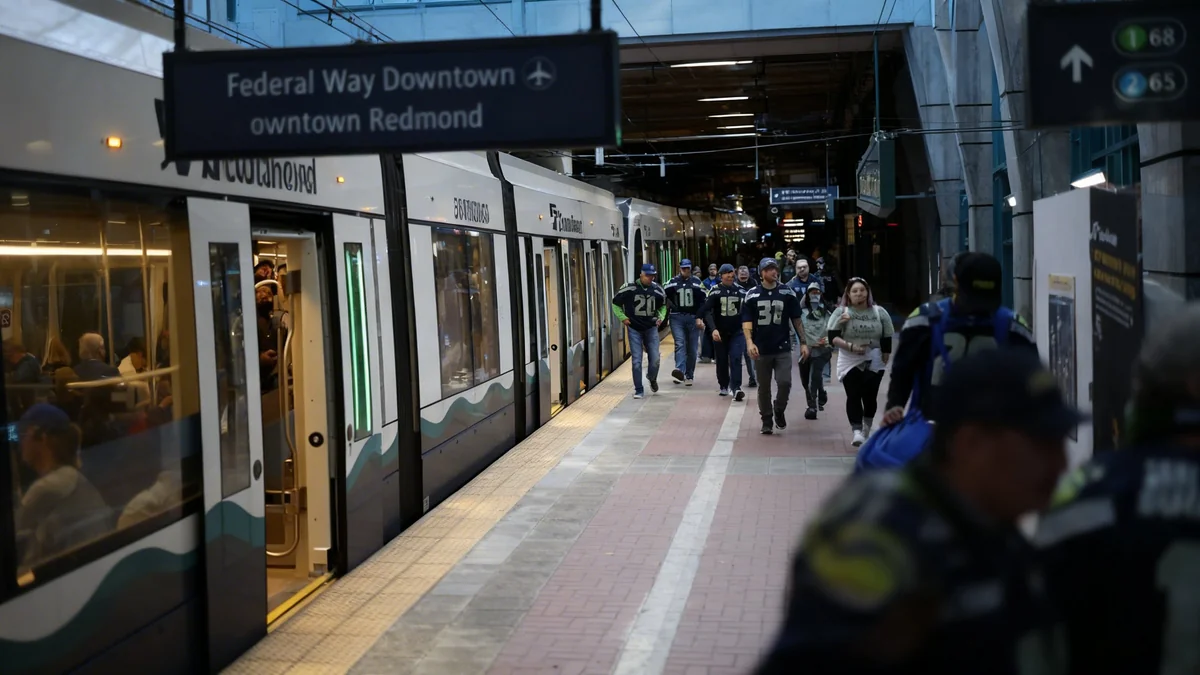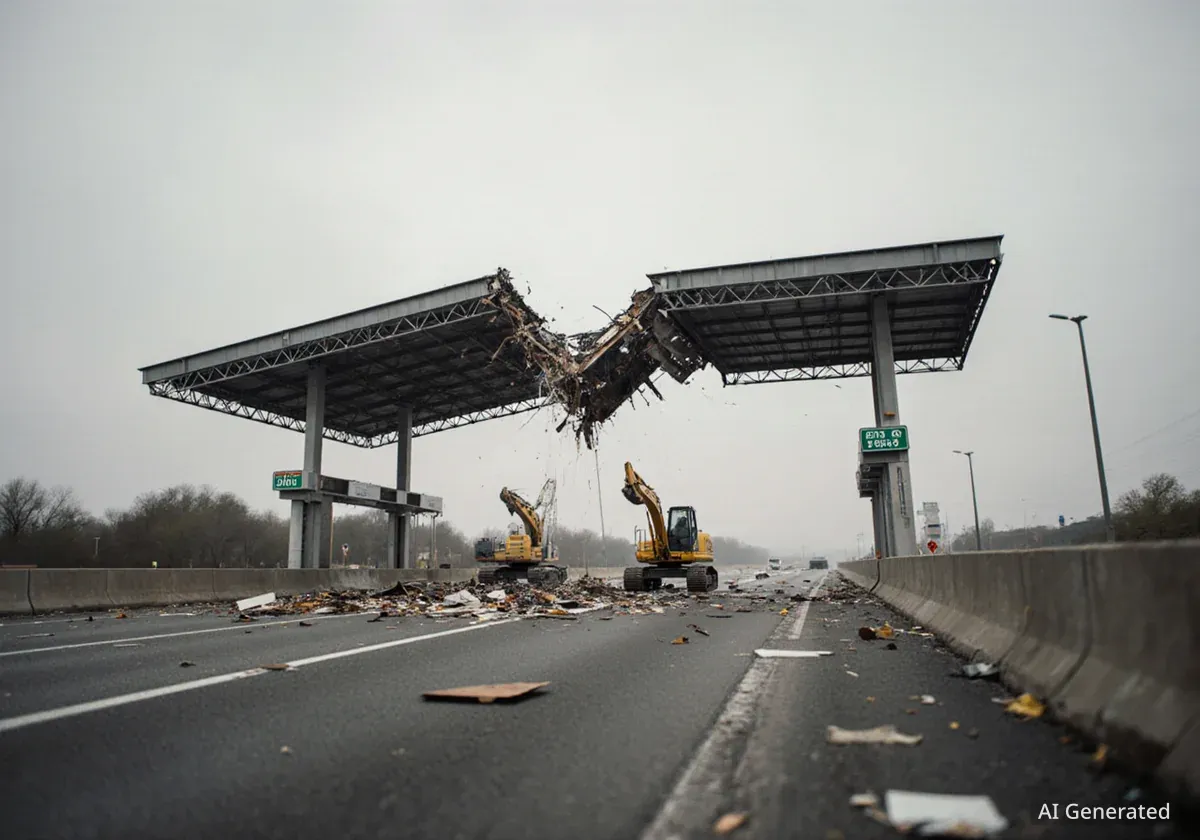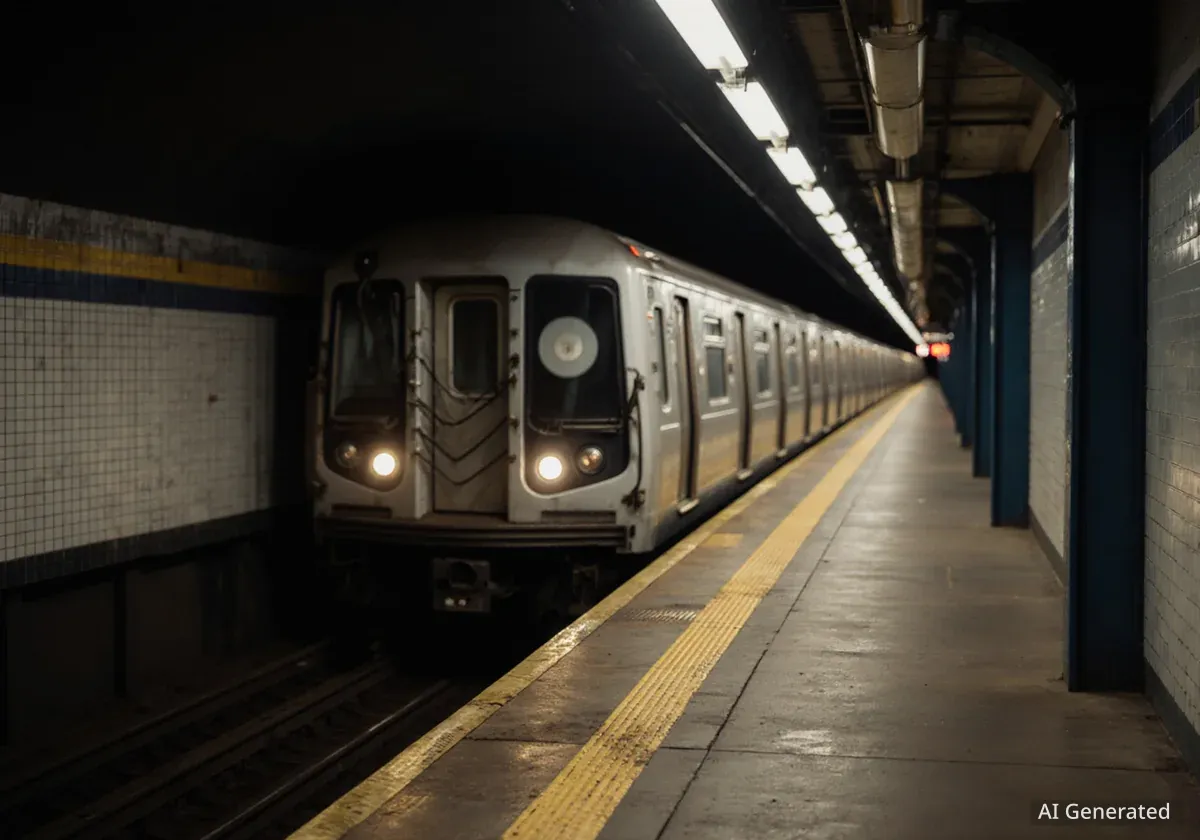Etihad Rail is developing a national railway network set to connect 11 major cities across the United Arab Emirates by 2026. A key feature of this project is a new passenger service that will reduce travel time between Dubai and Abu Dhabi to just 57 minutes, offering a significant alternative to road travel.
Key Takeaways
- Etihad Rail's new passenger service will connect Dubai and Abu Dhabi in 57 minutes.
- The broader network aims to link 11 major UAE cities by its 2026 target completion.
- Trains will travel at speeds up to 200 km/h and accommodate 400 passengers.
- The project focuses on a modern passenger experience with onboard amenities and digital ticketing.
- A future high-speed phase is planned to cut the Dubai-Abu Dhabi journey to 30 minutes.
A New Era of Connectivity in the UAE
The United Arab Emirates is advancing a major infrastructure project managed by Etihad Rail to establish a comprehensive national railway system. This initiative is designed to enhance transportation links between key urban and industrial centers throughout the country.
The network's primary objective is to connect 11 cities and regions, fundamentally changing how residents and tourists travel. The project is expected to be a cornerstone of the UAE's modern transportation infrastructure upon its completion, which is targeted for 2026.
Expanding the National Rail Network
Beyond the high-profile Dubai to Abu Dhabi route, the service will establish rapid connections to other important destinations. The travel time from Abu Dhabi to Fujairah is projected to be 105 minutes, while the journey to Ruwais will take approximately 70 minutes.
These new routes are expected to alleviate pressure on the nation's road systems. By providing a reliable and efficient alternative to driving, the rail service aims to reduce traffic congestion and improve overall mobility for both business and leisure travelers.
Strategic National Importance
The Etihad Rail project aligns with the UAE's broader vision for sustainable development. The government is investing in large-scale infrastructure to diversify the economy, reduce carbon emissions from transportation, and improve the quality of life for its population.
The Dubai to Abu Dhabi Route: A Closer Look
The connection between Dubai and Abu Dhabi is a central component of the Etihad Rail passenger service. The 57-minute journey time represents a substantial reduction compared to current travel times by car, which can vary significantly depending on traffic conditions.
Passenger trains on this route are designed to operate at speeds of up to 200 kilometers per hour. This speed ensures a quick and efficient commute between the UAE's two largest economic hubs, catering to a growing demand for inter-city travel.
Project by the Numbers
- 11: Major cities to be connected by 2026.
- 200 km/h: Maximum speed of the passenger trains.
- 400: Passenger capacity per train.
- 57 minutes: Travel time between Dubai and Abu Dhabi.
- 105 minutes: Travel time between Abu Dhabi and Fujairah.
Modern Passenger Experience Onboard
Etihad Rail is placing a strong emphasis on passenger comfort and convenience. The new trains are being designed to meet the expectations of modern travelers, with interiors that support both productivity and relaxation.
Each train will have a capacity of up to 400 passengers. Onboard amenities will include comfortable seating, high-speed internet access, and dedicated spaces for work, making the service an attractive option for business commuters who need to remain productive while in transit.
Focus on Digital Integration
To streamline the travel process, the company is adopting a "digital tickets first" strategy. This approach means the entire ticketing process will be handled digitally, from purchase to boarding. This not only offers greater convenience for passengers but also supports the project's environmental goals by reducing paper waste.
This digital focus is part of a wider commitment to utilizing state-of-the-art technology. The network will be supported by advanced signaling systems and infrastructure designed for safety, reliability, and efficiency.
Future Vision: Faster Speeds and Broader Impact
Looking beyond the initial 2026 goals, Etihad Rail has announced plans for an even faster high-speed rail connection. This future project aims to operate trains at speeds reaching 350 km/h, which would slash the travel time between Dubai and Abu Dhabi to an unprecedented 30 minutes.
This next-generation service would position the UAE among the countries with the world's fastest rail routes, further cementing its status as a global hub for transportation and innovation.
Economic and Environmental Benefits
The development of the national rail network is expected to yield significant economic advantages. By improving connectivity between cities, the project will foster closer business ties, support tourism, and facilitate the movement of goods and people. The expansion into freight services is also planned, which will further bolster the country's logistics sector.
Environmentally, the shift from road to rail is a key component of the UAE's sustainability strategy. Reducing the country's dependence on private vehicles is projected to lower carbon emissions and help manage urban traffic congestion, contributing to a more sustainable future.





